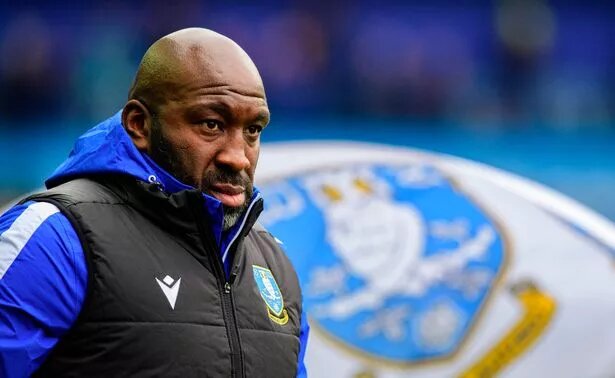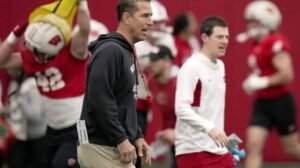
Due to the club’s league position, the manager can no longer afford to take an experimental approach as he has done at times since taking over, but it’s possible that he has learned what he needs.
When a new manager takes over at a club, it’s understandable that they would want to try new things or even revisit tried-and-true concepts that failed under their predecessors. After all, different tactics, forms, and mentalities can yield different outcomes in ostensibly the same role.

Regretfully, Darren Moore hasn’t discovered the ideal recipe for success at Huddersfield Town—assuming there is such a thing. Whether Ben Jackson was tried at right wing-back, Sorba Thomas at number 10, Yuta Nakayama in the back three, or Brahima Diarra in a box-to-box midfield role, there has been no shortage of effort to try and find points of difference.
Moore had to learn what was what in games because, in Kevin Nagle’s words, he was not given the opportunity to spend much time on the training pitch during the offseason after his arrival. Furthermore, just a few weeks prior, the manager expressed his desire to test out his players in new positions in case he needed them to perform there in the future. This may have been done with an awareness that his injury list was already concerning, even prior to receiving the worst news possible—that Jack Rudoni had suffered a foot injury.
The bad news is that Moore can no longer afford to experiment in the name of discovery because of the results; instead, he must be certain that his decisions and the people he assigns to work with will give his side the best chance of winning. The good news is that he has now had the chance to assess everyone’s strengths and weaknesses, at the very least.
Knowing who to rely on and who not to on matchday is essential, as any manager will tell you can differ greatly from what they observe on the practise pitch. With the exception of backup goalkeeper Chris Maxwell, all of Moore’s fit senior options have now participated in at least one game under the new manager. Moore has overseen seven games; all but one of them have made appearances, with Rarmani Edmonds-Green being the lone exception.
Perhaps the most significant and illuminating question is which players he can trust: as we witnessed last season under Neil Warnock, there are situations when it is preferable to play someone who is limited but error-free rather than choose someone who offers more on paper. Few would have predicted that Edmonds-Green would be a better defensive midfield option than Etienne Camara or that Jaheim Headley would be a better winger than Joe Hungbo, but that is exactly what happened. It’s the kind of thing you only discover through painful experience.
With seven players sidelined due to injuries and Jonathan Hogg suspended for Saturday’s visit from Watford, Moore clearly has a challenging task ahead of him. Finding good things to say about the manager’s tenure thus far is difficult, but he has made it clear that they must learn from their setbacks.
Though those have proven to be hollow words thus far, there is some truth to the claim that every time Moore has attempted to solve a problem, it has only led to new problems elsewhere, even when the solution he came up with appeared ideal on paper. Moore needs to put those lessons into practise if Town is to improve their situation any time soon.






